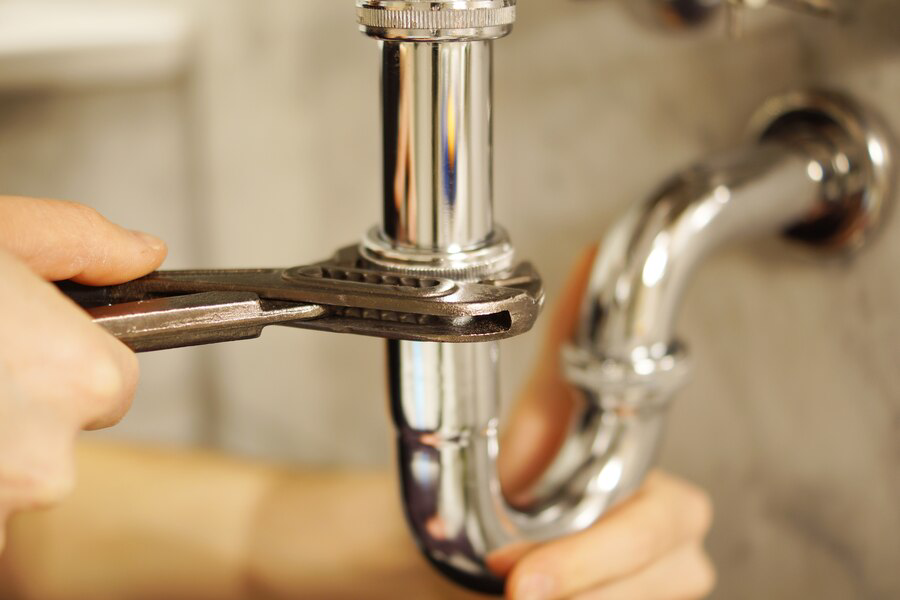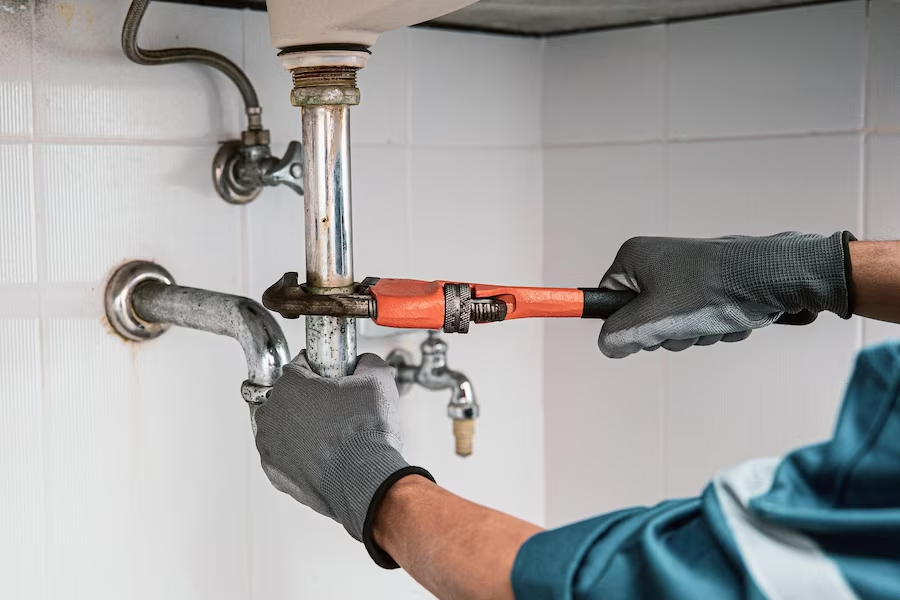In the realm of home maintenance, few things can cause as much stress and inconvenience as plumbing disasters. From burst pipes to clogged drains, these issues can wreak havoc on your home and your wallet if left unchecked. However, with the right preventative measures in place, many plumbing disasters can be avoided altogether. In this comprehensive guide, we’ll delve into essential maintenance tips that every homeowner should know to keep their plumbing system running smoothly year-round.
From simple tasks like regular inspections and cleaning to more involved measures such as installing water softeners or updating outdated fixtures, we’ll cover a range of strategies to help you safeguard your home against potential plumbing mishaps. Whether you’re a new homeowner looking to establish good habits or a seasoned pro seeking to fine-tune your maintenance routine, this guide will equip you with the knowledge and tools necessary to prevent plumbing disasters and preserve the integrity of your home for years to come.
Top 5 Maintenance Tasks to Keep Your Plumbing System in Tip-Top Shape
Maintaining your home’s plumbing system is essential for preventing costly and inconvenient disasters. By performing regular maintenance tasks, you can keep your plumbing in tip-top shape and avoid issues like leaks, clogs, and pipe bursts. In this blog post, we’ll discuss the top five maintenance tasks that every homeowner should prioritize to ensure their plumbing system functions smoothly.

Check for Leaks
One of the most crucial maintenance tasks for your plumbing system is to regularly check for leaks. Even small leaks can lead to significant water damage over time if left unaddressed. Inspect all visible pipes, faucets, and fixtures for any signs of dripping or moisture. Additionally, keep an eye out for water stains on walls and ceilings, as these can indicate hidden leaks. If you discover any leaks, promptly repair or replace the affected components to prevent further damage.
Clear Clogged Drains
Clogged drains are a common plumbing issue that can lead to slow drainage, foul odors, and even sewage backups if not addressed promptly. To prevent clogs, avoid pouring grease, food scraps, hair, and other debris down your drains. Regularly clean out debris traps in sinks, showers, and tubs to prevent buildup. If you do encounter a clog, try using a plunger or a drain snake to clear it. For stubborn clogs, consider using a natural or commercial drain cleaner, but use these products sparingly to avoid damaging your pipes.
Inspect and Maintain Water Heater
Your water heater plays a crucial role in providing hot water for bathing, cleaning, and cooking. To ensure its optimal performance and longevity, it’s essential to inspect and maintain your water heater regularly. Check for signs of corrosion, leaks, or rust on the tank and connections. Test the pressure relief valve to ensure it’s functioning correctly. Additionally, flush the water heater tank annually to remove sediment buildup, which can reduce its efficiency and lifespan. Proper maintenance will help prevent unexpected breakdowns and ensure a reliable supply of hot water.
Test Water Pressure
High water pressure can put excessive strain on your plumbing system, leading to leaks, burst pipes, and other issues. Conversely, low water pressure can indicate a blockage or leak in the system. Regularly testing your home’s water pressure can help you identify and address any abnormalities. You can use a pressure gauge to measure the water pressure at various faucets and fixtures throughout your home. If you notice consistently high or low water pressure, consider installing a pressure regulator or contacting a plumber to investigate and resolve the issue.
Insulate Exposed Pipes
In colder climates, freezing temperatures can cause unprotected pipes to freeze and burst, resulting in extensive water damage. To prevent this, it’s essential to insulate any exposed pipes, especially those in unheated areas like basements, attics, and crawl spaces. Use foam pipe insulation sleeves or heat tape to wrap around vulnerable pipes and protect them from freezing temperatures. Additionally, seal any gaps or cracks in exterior walls to prevent cold air from reaching pipes. By insulating your pipes, you can safeguard your plumbing system against the risk of winter-related disasters.
What Every Homeowner Should Know About Handling Plumbing Disasters
Plumbing disasters can strike at any time, causing damage to your home and potentially costing you thousands of dollars in repairs. As a homeowner, being prepared to handle these emergencies is crucial. In this guide, we’ll discuss essential tips and steps you should know to effectively manage plumbing disasters and minimize their impact on your property.

- Identify the Main Water Shut-Off Valve: The first step in dealing with any plumbing emergency is to locate the main water shut-off valve in your home. This valve controls the flow of water to your entire house. Knowing its location and how to shut it off quickly can prevent further water damage in case of a burst pipe or major leak.
- Familiarize Yourself with Individual Fixture Shut-Off Valves: In addition to the main water shut-off valve, many fixtures in your home, such as sinks, toilets, and washing machines, have individual shut-off valves. Knowing how to turn off these valves can isolate the problem and prevent water from flowing to the affected area without disrupting water supply to the rest of the house.
- Keep Essential Tools Handy: Every homeowner should have a basic toolkit readily available, including items such as a pipe wrench, adjustable wrench, pliers, pipe tape, and a plumber’s snake. These tools can help you temporarily fix minor issues or at least mitigate damage until a professional plumber arrives.
- Act Quickly: Time is of the essence when dealing with plumbing emergencies. As soon as you notice a leak, burst pipe, or other plumbing issue, take immediate action to minimize damage. Shut off the water supply, mop up any standing water, and move belongings away from the affected area to prevent further damage.
- Know When to Call a Professional: While DIY fixes can be helpful in certain situations, it’s essential to recognize when a plumbing issue requires the expertise of a professional plumber. Complex problems such as sewer line backups, extensive pipe damage, or water heater malfunctions should be handled by experienced professionals to ensure proper repairs and prevent further complications.
Conclusion
prioritizing regular maintenance of your plumbing system is essential in preventing potential disasters in your home. At EZI Plumbing, we understand the significance of proactive measures to safeguard your property from costly damages. By adhering to simple maintenance tips, homeowners can mitigate the risk of plumbing emergencies and ensure the longevity of their systems. From inspecting for leaks to scheduling professional inspections, our commitment is to empower homeowners in Chain Valley Bay, NSW, Australia, to maintain efficient plumbing systems. Contact us at +61 448467788 to learn more about our services and safeguard your home against plumbing disasters.

